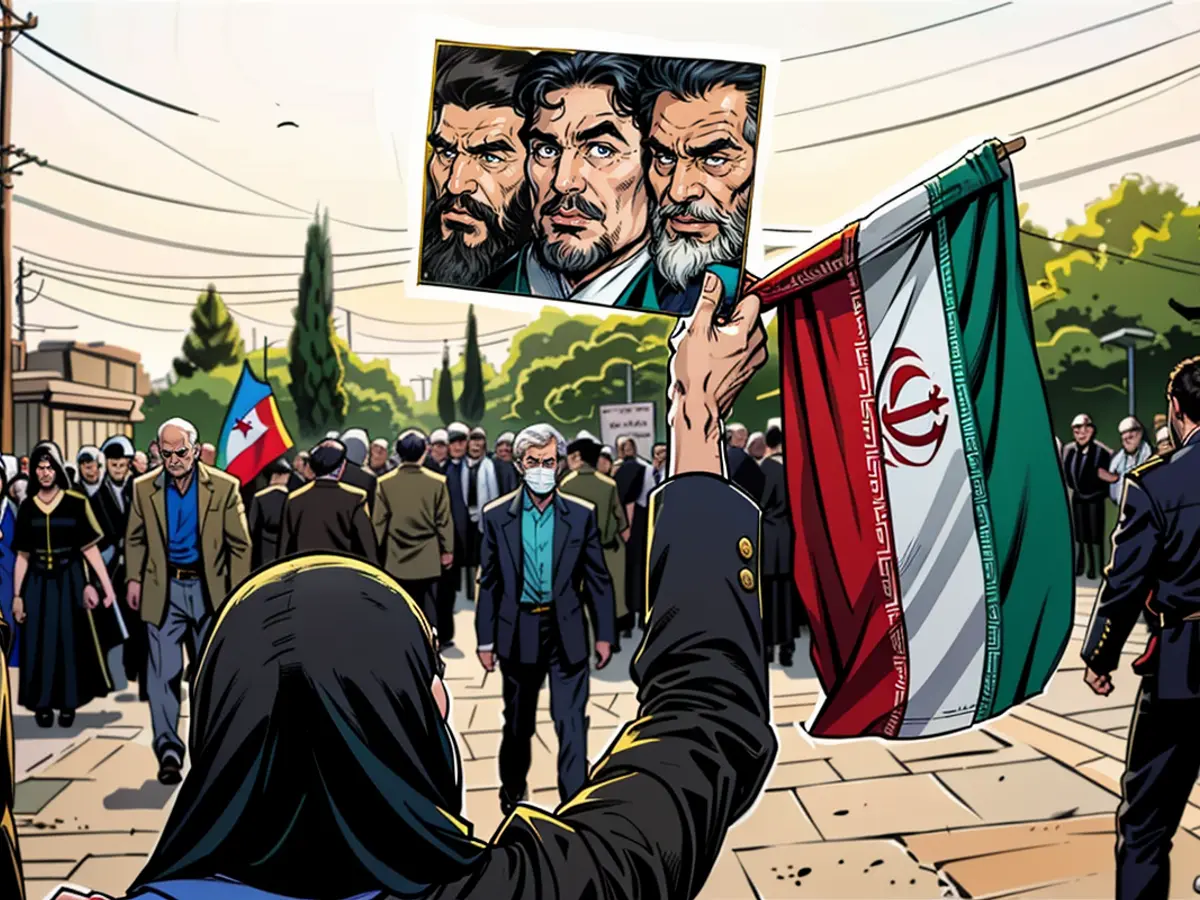Specialists suggest that Nasrallah's existence potentially impedes the prospect of Khamenei's successor.
Upon the demise of Hassan Nasrallah, the prominence of Hezbollah takes a significant hit. Nasrallah served not only as their leader but also as a pivotal figure in the so-called Resistance Axis against Israel, with Iran potentially facing a void in spiritual leadership.
According to Middle East expert Jannis Julien Grimm from the Free University of Berlin, Nasrallah's death is a substantial setback inflicted by Israel that extends beyond Lebanon's borders. Grimm stated, "Nasrallah's demise carries considerable ramifications for the power structure in Iran, as well as the broader region."
Grimm explained, "Nasrallah was a prominent public figure in the entire Middle East, acting as both a bogeyman and a rallying point for alliances." Nasrallah's growing influence within the Resistance Axis, an alliance led by Iran that encompasses Houthi rebels, Iraqi militias, Bashar al-Assad in Syria, Hezbollah, and the Iranian Revolutionary Guard Corps, made him a vital player within the alliance, as Hezbollah was widely recognized as the only faction capable of challenging Israel.
In the event of Ayatollah Ali Khamenei's retirement or demise, Grimm suggests that Hezbollah could potentially lose a promising spiritual successor. Grimm stated, "If Ayatollah Khamenei steps down or passes away, the spiritual authority of this alliance might have transferred to Nasrallah, given the lack of other charismatic figures in Iran who could assume such a role."
Grimm noted that Hezbollah is currently experiencing temporary weakness as a result of Israel's recent airstrikes. "Militarily, Hezbollah is not currently as capable as it once was," Grimm observed. Although Nasrallah only held sway over the level of escalation, "the specific operations were overseen by Hezbollah cadres, many of whom have been targeted in Israeli airstrikes in recent weeks." However, Grimm expects others to step up, stating, "Hezbollah has no dearth of promising young talent."
Israel announced in the morning that Nasrallah, aged 64, had perished in an airstrike on Hezbollah's headquarters in Beirut. Hezbollah confirmed the news in the afternoon and proclaimed, "We continue the struggle."
Following Grimm's analysis, the demise of Nasrallah could lead to a power shift within Iran, as he was seen as a potential spiritual successor in the absence of Ayatollah Ali Khamenei. Furthermore, Nasraballah, being the head of the Islamic Revolutionary Guard Corps, played a significant role in the alliance led by Iran, with Hezbollah being the only faction capable of challenging Israel within that alliance.








